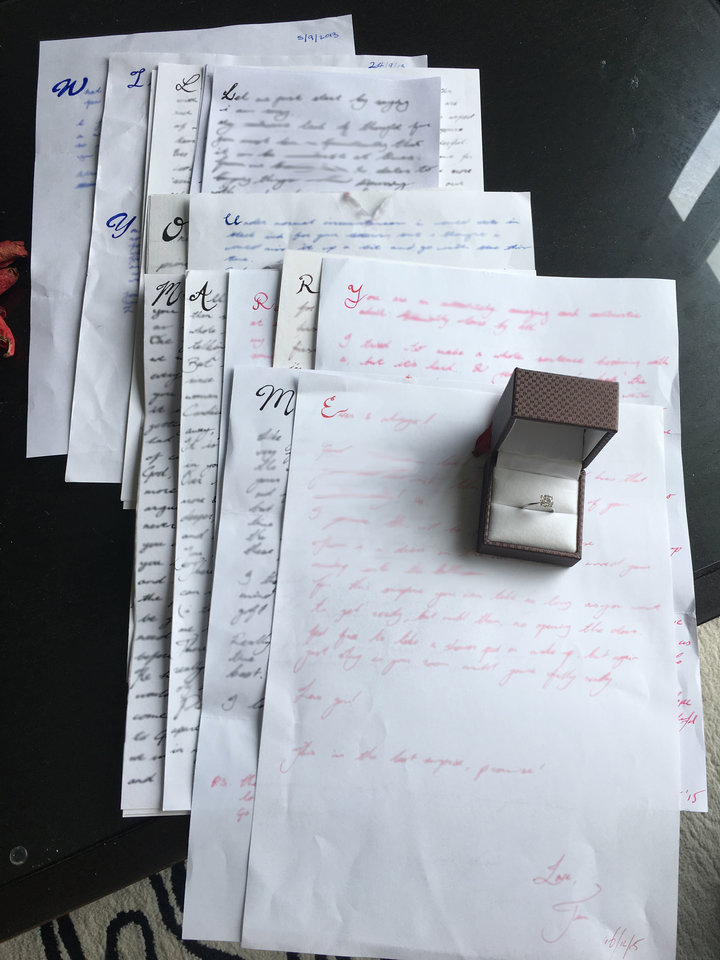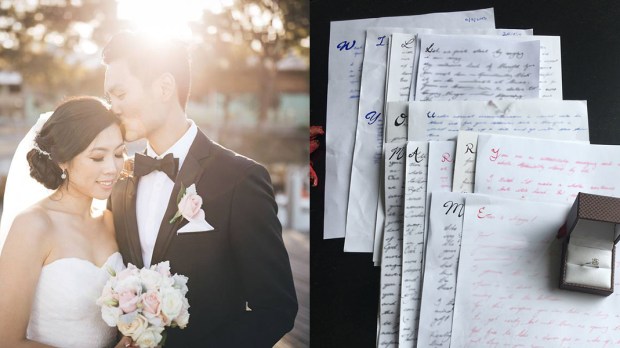His name is Timothy Chee. Her name is Candice. They both live in Australia. This is their love story, complete with 14 love letters … and a romantic twist.
The couple met in 2013, and within a week were already exchanging letters … even though they lived in the same neighborhood. No, not emails or text messages. Hand-delivered snail mail letters written on real paper. On top of that, they were not typed on a computer keyboard, but handwritten. They decided to carry on their correspondence this way so that they could have a tangible record of their experiences and shared memories.

Read more:
What C.S. Lewis can teach us about true love
It was Timothy who sent the first letter. And he kept writing, spaced out month after month, until all in all, there were 14 love letters, all addressed to Candice. [And that was no accidental number, but we’ll get to that in a minute.) But to merely describe them as handwritten doesn’t do the epistles justice: Each one of his letters began with a large and ornate capital letter which gave the letters more charm and romance. Truly, a labor of love.

After the 14th letter had been postmarked, Tim invited Candice to meet him at the place they first met. And then, the big reveal: For three years, letter after letter initial after initial, Tim had been slowly, asking his girlfriend a very important question: When those first ornate letters were arranged next to one another in chronological order, they created a simple sentence: “Will you marry me.”
Tim’s grande gesture received the response he was looking for: an enthusiastic Y-E-S. Today, Candice is his wife. And at the wedding, he had yet another surprise for her. Timothy sang a song he wrote for Candice, which he says he wrote just two months into their relationship.
Proof that there are still romantic, patient, and persistent men willing to delight and surprise their beloved women? We think so.
This article was originally published in the Polish version of Aleteia.

